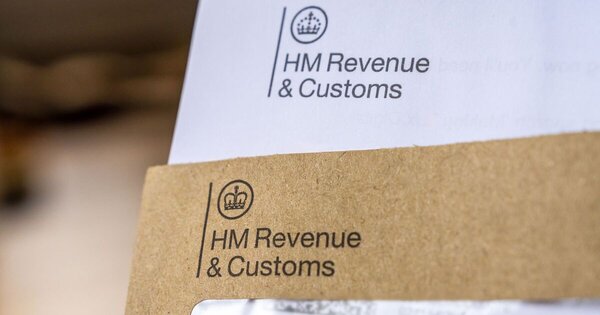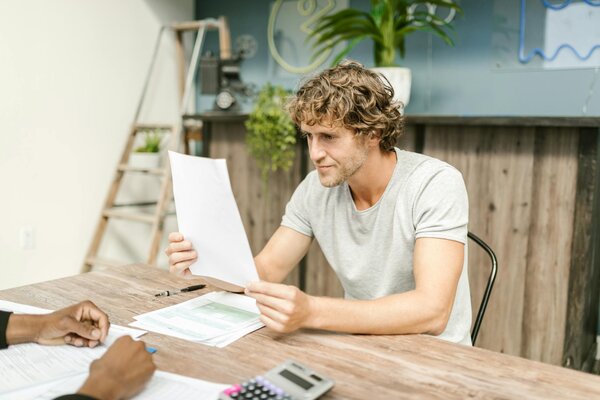Understanding Trading Allowance

A trading allowance is a common deduction that allows people to claim an exemption of up to £1,000 in trading, casual or miscellaneous income per tax year. The terms "trading", "casual" and "miscellaneous" are fairly nebulous and could potentially refer to income from any number of sources, including part-time hobbies. For example, a person may enjoy making candles in their spare time and then sell some of them at a local market. In that case, their earnings, up to £1,000 would be tax exempt. But because this is not an automatic deduction you will need to make the effort to claim it on your tax return.
Calculating your trading, casual or miscellaneous income is a very straightforward process. If, for instance, you made £400 from selling the aforementioned candles, plus you made another £350 by way of a car boot sale, your total trading income would be £750 and the entire amount could be claimed as a deduction. Just note that it’s important you account for the total gross trading income. Not the net amount.
If the £750 is your only income for the year you will not have to claim the trading allowance because it doesn’t reach the taxable income threshold. Attempting to claim the trading allowance then would be unnecessary and redundant.
Key Benefits of Trading Allowance
Trading Allowance offers individuals the opportunity to earn up to £1,000 tax-free annually from trading activities. This allowance not only reduces tax liabilities but also simplifies the tax process significantly. By eliminating the need for detailed record-keeping and reporting, it lightens the administrative burden for small-scale traders, allowing them to focus more on their business activities rather than on tax compliance. This simplicity encourages entrepreneurship and supports individuals looking to supplement their income through small trading ventures without the complexities typically associated with tax filing.


Is Claiming Trading Allowance Worth It?
Claiming Trading Allowance can significantly benefit those with sporadic or small trading incomes. It provides a straightforward way to reduce tax liabilities and administrative burdens associated with traditional self-assessment tax returns. By simplifying tax obligations, individuals can focus more on growing their trading activities rather than navigating complex tax procedures. This allowance is particularly advantageous for freelancers, hobbyists, and small business owners who may not have substantial trading income but still wish to maximise their earnings without the hassle of extensive tax reporting requirements.

Recent statistics reveal that over 600,000 individuals in the UK benefit from Trading Allowance each tax year. This allowance has gained popularity for its simplicity and effectiveness in reducing tax burdens for small-scale traders and encouraging economic activity among individuals engaged in small trading ventures.Key Statistics on Trading Allowance

Trading Allowance has led to a 20% decrease in the number of self-assessment tax returns filed for small trading incomes. This reduction underscores its effectiveness in simplifying tax compliance, reducing administrative burdens, and streamlining the reporting process for small-scale traders across the country.Impact to Self-Assessment

Why Would I Have to Register as Self-Employed with HMRC?
Earning £1,000 annually from various activities might not seem significant to many, especially considering rising living costs. However, HMRC defines self-employment irrespective of income level, setting the threshold at £1,000. If you earn £1,001 or more from selling goods like cookies or handmade items, you must register as self-employed and file a self-assessment tax return.
To claim the trading allowance, include it on page 1 of your tax return. Even if your earnings don't require reporting to HMRC, documenting them can affect eligibility for means-tested benefits such as Universal Credit. It's essential to adhere to current tax laws unless legislative changes occur.
Reasons Why You Might Not Want to Claim the Trading Allowance
Firstly, if your business expenses related to your miscellaneous income exceed £1,000, it's better to itemise these expenses rather than claiming the trading allowance.
Secondly, if you have multiple sources of trading income, even if one source has expenses below £1,000, combining expenses from all sources may exceed this threshold. In such cases, claiming the trading allowance could disadvantage you.
Lastly, if your trading expenses outweigh your income, resulting in a net trading loss, it's more beneficial to file a self-assessment tax return and claim a business loss rather than using the trading allowance. It's crucial to assess your individual circumstances to determine the most advantageous approach for your tax situation.

Essential Tips for Trading Allowance

Keep thorough records of all trading activities and related expenses throughout the tax year for accurate reporting.Maintain Detailed Records

Ensure your total trading income remains below £1,000 annually to qualify for claiming the trading allowance.Verify Income Thresholds

When filing your self-assessment, clearly specify your use of the trading allowance to maximise tax savings and compliance.Optimise Tax Benefits

Fun Fact about Trading Allowance
Did you know? Trading Allowance not only reduces tax liabilities but also encourages entrepreneurial activities among individuals with low-scale trading incomes.

When considering Trading Allowance, experts stress strategic planning and meticulous record-keeping. It's crucial to assess if claiming the allowance fits your financial situation. For those nearing the £1,000 threshold, monitoring throughout the year ensures compliance and maximises tax benefits. Experts advise maintaining detailed records of income and expenses to accurately report on self-assessment tax returns, ensuring compliance with HMRC regulations.
Additionally, experts recommend assessing all income sources to optimise the allowance. Consolidating expenses from multiple trading streams can lower taxable profits. Seeking advice from tax professionals or using tools like the Pie Tax App offers personalised guidance to navigate allowance complexities. Staying proactive and well-informed helps individuals effectively leverage Trading Allowance to reduce tax liabilities and streamline tax filing.

Experts stress the importance of strategic planning when considering Trading Allowance. Assessing if the allowance aligns with your financial situation is crucial. For those nearing the £1,000 threshold, maintaining meticulous records throughout the year ensures compliance and maximises tax benefits on self-assessment tax returns.Strategic Planning and Record-Keeping

Consolidating expenses from multiple trading activities can lower taxable profits significantly. Seeking advice from tax professionals or using tools like the Pie Tax App provides personalised guidance to navigate allowance complexities. Staying proactive and informed helps minimise tax liabilities and streamline tax filing processes in the UK.Seek Professional Advice
Summary
The trading allowance is a simple and convenient way for you to claim up to £1,000 deduction from your taxable income. But there may be instances when you are better off itemising deductions. If you decide to go the expenses route, just remember you will need to present receipts for every expense you claim on your tax return.
Want to gain a stronger understanding of your tax obligations? Why not try Pie – the easy-to-use personal tax management app. Explore our pricing and learn about the 60-day free trial here:
How is Pie different?
Pie is the only app for self assessment with tools for bookkeeping, your live tax figure, easy tax returns and helpful advice when you need it.
Save £168 per year vs Quickbooks, file your self assessment today for free with Pie
FREE
£89
+£59
£126
Quickbooks
£168
per year7 features
TaxScouts
£169
per year4 features
Accountant
£450
avg per year5 features
* Optional add on
Frequently Asked Questions
What is the Trading Allowance in the UK?
Trading Allowance allows individuals to earn up to £1,000 annually from trading activities without paying tax.
Who can claim Trading Allowance?
Any individual with trading income below £1,000 per tax year can claim Trading Allowance.
How do I report Trading Allowance on my tax return?
Report your trading income using the relevant section of your self-assessment tax return, indicating your use of Trading Allowance.
Can I claim expenses alongside Trading Allowance?
Yes, you can deduct allowable expenses from your trading income before applying Trading Allowance.
Is Trading Allowance applicable to all types of trading income?
Trading Allowance applies to most types of trading income, excluding income from employment or partnerships.











